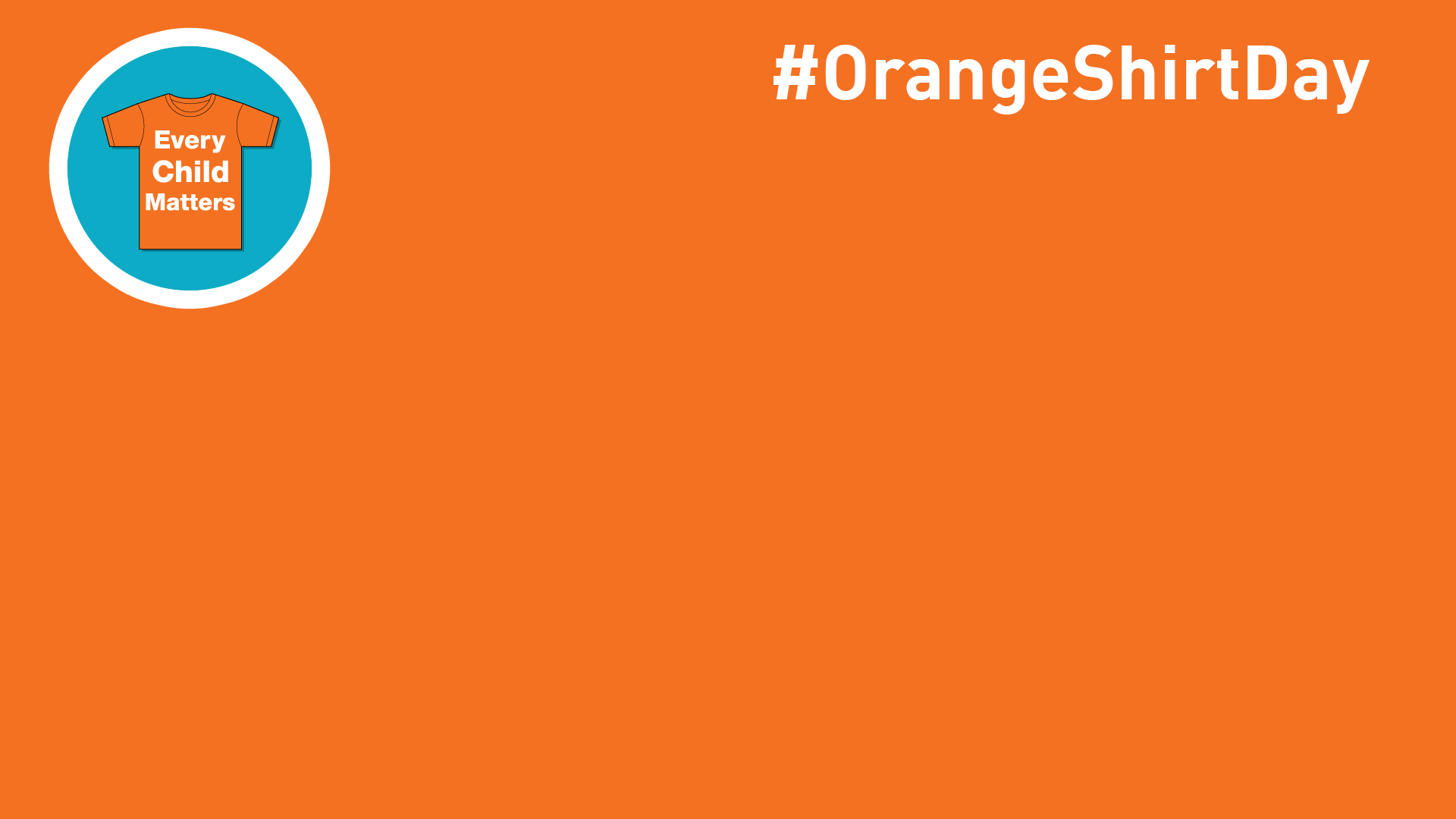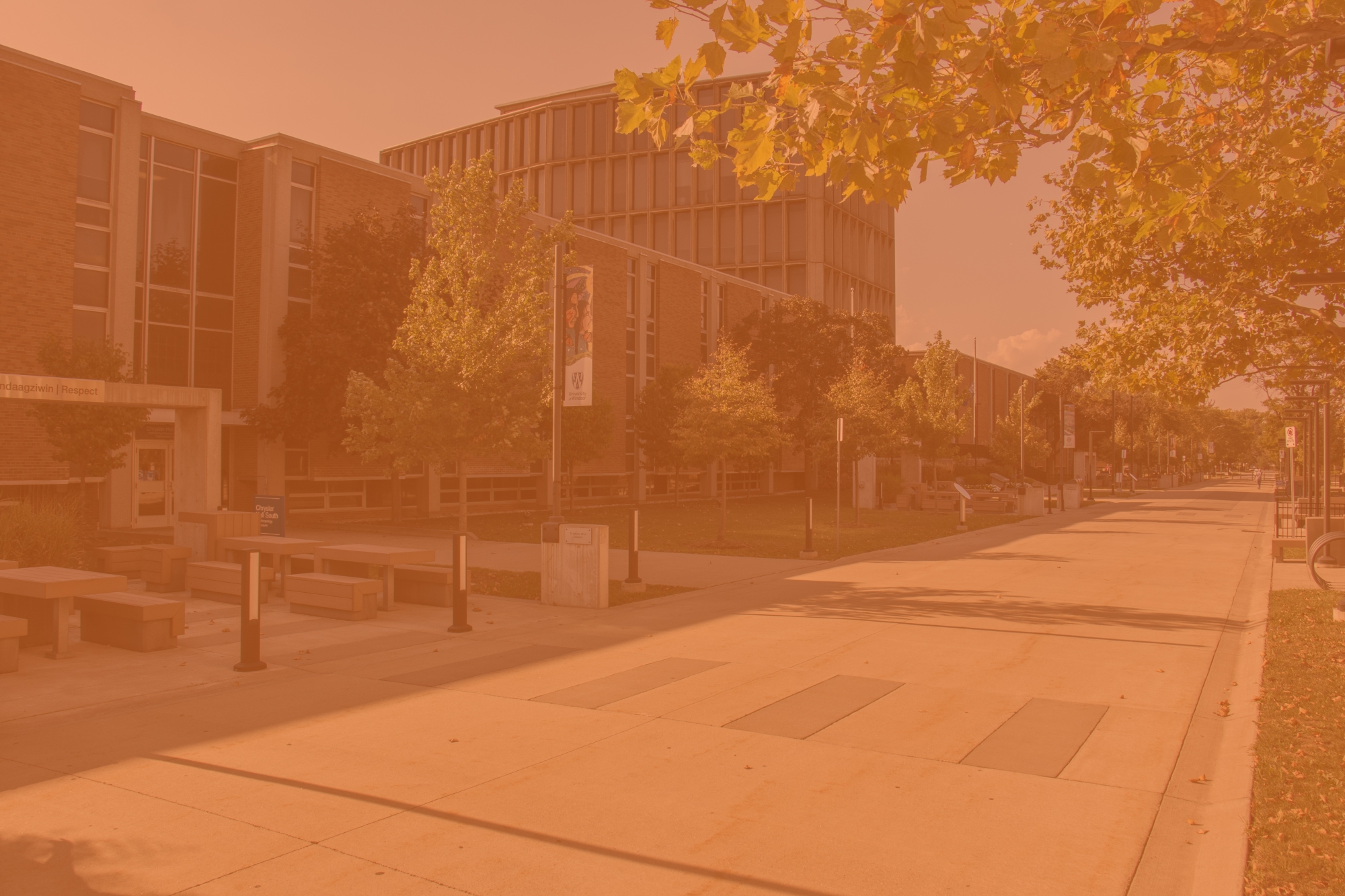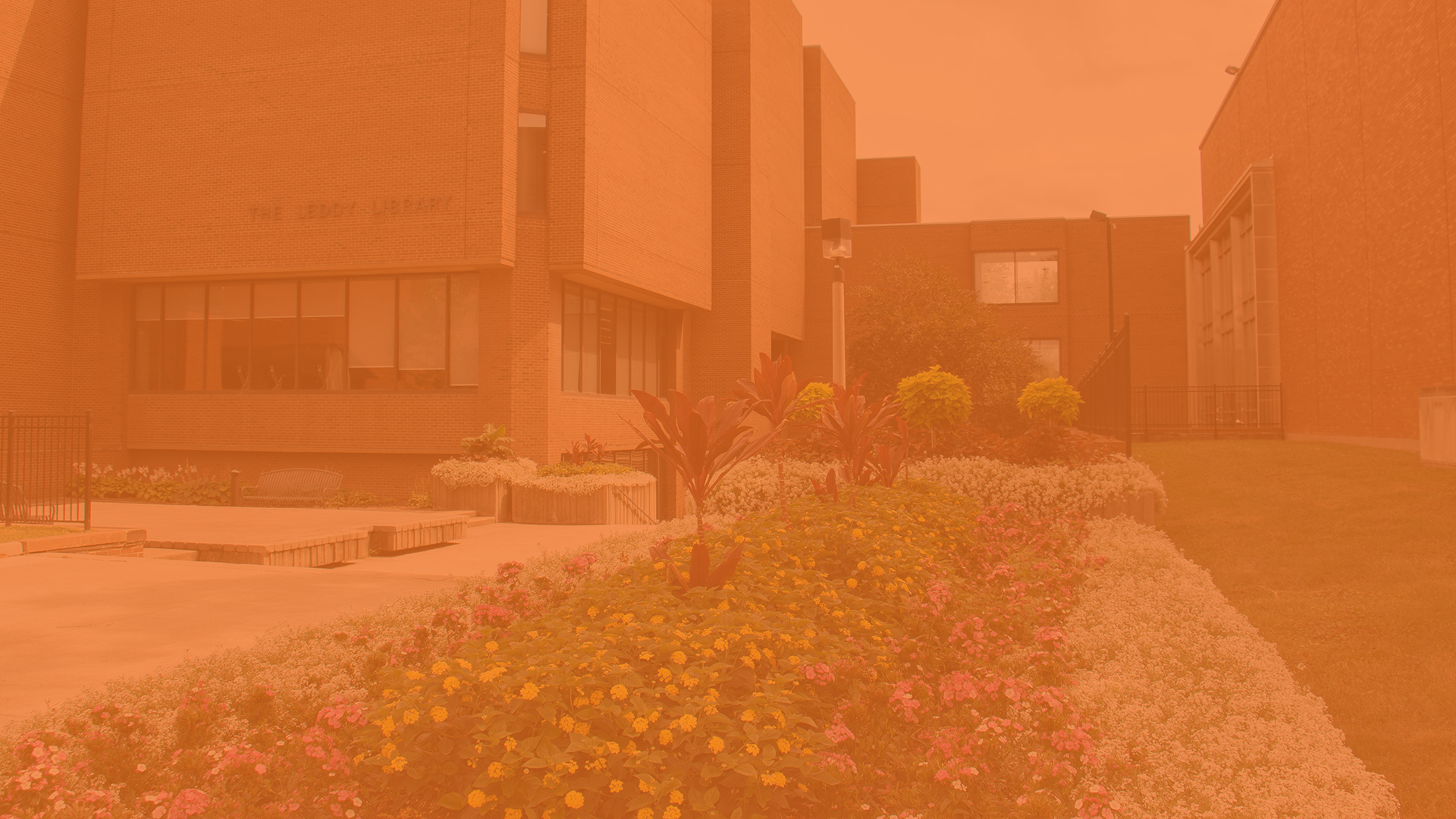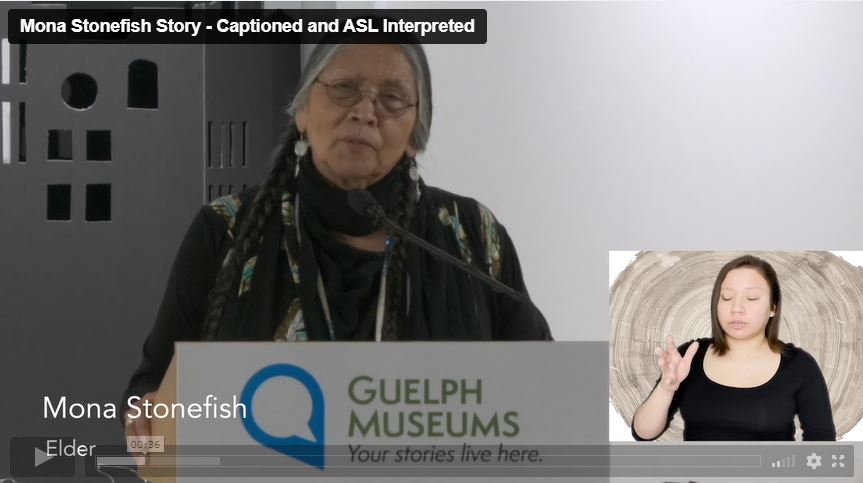The University of Windsor is committed to reconciliation. We're working to foster respect and mutual understanding with all Indigenous peoples and communities. You can partner in the work of reconciliation by listening, learning, and sharing on Orange Shirt Day.
What is Orange Shirt Day - National Day for Truth and Reconciliation?
Orange Shirt Day - National Day for Truth and Reconciliation s a national movement and annual event in Canada. During this day Indigenous and non-Indigenous people come together in the spirit of hope and reconciliation to honour those who attended residential schools, their families, and communities.
Take time to learn about the impacts of the policies and actions of the Government of Canada and the churches that operated the schools. We listen to the stories of survivors and their families and remember those that didn’t make it home.
The observance of Orange Shirt Day on campus in 2025 is Tuesday, September 30.
Residential school survivor, Phyllis Webstad began observing this day in Williams Lake, BC in 2013 at the St. Joseph Mission (SJM) residential school commemoration event at which told the story of her shiny new orange shirt that was taken away from her on her first day of school at the SJM.
Orange Shirt Day occurs in early fall because this is the time of year when children were removed from their families and forced to attend residential schools.
The residential school era began in the early 1870’s, with the last school closing in 1996. More than 150,000 First Nations, Métis and Inuit children attended these schools. There are an estimated 80,000 survivors living today.
To commemorate Orange Shirt Day, Turtle Island Walk will display orange lights in a spirit of hope and reconciliation to honour those who attended residential schools, their families, and communities, bringing light to the impacts of residential schools.
Campus Events
Mondays on September 15, 22, 29
Orange Shirt Merchandise Pop-ups 10:00 a.m. – 3:00 p.m.
Pick up your Orange Shirt t-shirts and merchandise on Mondays until September 29 in the CAW Student Centre common area, sold by the Turtle Island - Indigenous Student Services. Proceeds support the campus’ Orange Shirt Fund, benefiting Indigenous students at UWindsor. Please note, the centre is licensed to sell Every Child Matters items.
Lawn signs, hoodies, hats, t-shirts, pins and cookbooks are available. Cash and card accepted. If you cannot make it to a pop-up date, please email Victoria Hecnar at vhecnar@uwindsor.ca.

Tuesday, September 30
Every Child Matters Walk & Flag Raising 9:30 – 10:15 a.m.
Turtle Island Walk - River Commons and Chrysler Hall Tower Courtyard
Join the campus community in a reflective walk beginning at the Big Turtle Sculpture and concluding with a flag raising at the west steps of Chrysler Tower, honouring the children and survivors of residential schools, as well as their families and communities. The flag will be lowered on Tue, Oct 21 at 10:00 a.m. with a ceremony to follow.

Drum Social 10:00 a.m. – 1:00 p.m.
David A. Wilson Commons
Experience the power of song and gathering at the Drum Social in David A. Wilson Commons, a celebration of Indigenous culture and community spirit.

Walking Together: Màwandòsewin, Truth, and Reconciliation in Post-Secondary Education – 12:00 p.m. – 1 p.m.
Leddy Library Collaboratory (workshop) To register, please log in.
Instructor Jaimie Kechego is facilitating a workshop inviting educators, staff, and institutional leaders to engage with the Màwandòsewin: Gathering of the Indigenous Curriculum Specialists’ Network – Report of Recommendations for Post-Secondary Institutions in Canada.

Orange Shirt Day Heart Photo - 1:00 p.m.
West Entrance - Ron W. Ianni Faculty of Law
Show your support by wearing orange and joining Windsor Law for their annual Orange Heart Photo at the west entrance of the Ron W. Ianni Faculty of Law, a visual tribute to truth and reconciliation.

More Ways to Get Involved on Campus
Virtual Meeting Backgrounds: Save the photos below and follow the instructions to apply them to your Microsoft Teams or Zoom Meeting.
Email Signature: Add Orange Shirt Day to your email signature.
View instructions to learn how to add Orange Shirt Day to your email signature.
More Ways to Get Involved in the Community
- Saturday, September 27, 12pm – 4pm, 252 Dalhousie St., Amherstburg
- Near the King’s Navy Yard Park
- https://visitamherstburg.ca/events/reconciliation/
- tourism@amherstburg.ca
Together as a community, we are on this journey of reconciliation. The truths of families and survivors of Canadian residential schools have left permanent scars on communities and our nation.
In the spirit of healing and reconciliation, we will gather by the gazebo in King’s Navy Yard Park Saturday, September 27, 2025. Join us and Ska:na Family Learning Centre to learn more about Indigenous culture, and watch demonstrations of dancing, drumming and storytelling.
Learn and listen from Elders and motivational speakers from the community. Children’s activities will take place at the teepee, and Indigenous vendors will be in the park selling products.
What’s happening at this year’s gathering starting at 12:00pm
- Opening welcome at the gazebo in King’s Navy Yard Park at 12:00pm
- Corn soup and bannock at Park House Museum
- Teachings at the Park House and a film screening upstairs
- River Bookshop featured books and art
- Orange cookies for sale at Caffeine and Co.
- Early ON – bracelet making activity and colouring near the teepee in King’s Navy Yard Park
- Drumming at the gazebo
- Vendors & more!
- Tuesday, September 30 | 10am – 5pm | 401 Riverside Dr. W, Windsor
- Enjoy free admission to the Chimczuk Museum & Art Windsor Essex in honour of National Day for Truth and Reconciliation. This is an opportunity to visit the Original Peoples Culture and Legacy Gallery located inside the Chimczuk Museum and learn about local Indigenous history.
- https://artwindsoressex.ca/events-workshops/orange-shirt-day-national-day-for-truth-and-reconciliation-events-2025/
- windsororangeshirtday@gmail.com
- Museum Windsor, Sept 30 | 401 Riverside Dr. W, Windsor, main floor galleries
- Travelling from the Canadian Museum for Human Rights in Winnipeg, The Witness Blanket is a powerful art installation created by master carver Carey Newman to recognize the atrocities of the residential school era, honour the children and symbolize ongoing reconciliation. Inspired by a woven blanket, this cedar-framed replica artwork features hundreds of items from Indian residential schools, survivors, churches, governments, and other cultural sites across Canada. Each item tells a story of loss, strength, resilience, and pride.
- Tuesday, September 30 | 9:30am-12pm | 5200 Matchette Rd, Windsor, ON
- Join in an honour walk, to commemorate Orange Shirt Day and National Day of Truth and Reconciliation. Feel free to bring personal drums and shakers and join in. After the walk, enjoy a drum group and a light community breakfast. Organized by the Orange Shirt Day Committee.
- Art Windsor-Essex, Sept 30 | 401 Riverside Dr. W, Windsor, third floor galleries
- Art Windsor-Essex partnered with the Windsor Essex Catholic District School Board on a display of artworks made by students in Windsor-Essex. The hearts were coloured by students at WECDSB, displayed as blossoming flowers, representing our collective commitment to working together to achieve truth and reconciliation.
- Tuesday, September 30 at 12 pm | Kingsville Arena
- The Town of Kingsville will welcome members of Caldwell First Nation to join council in leading the annual Orange Shirt Walk in observance of National Day for Truth and Reconciliation. Residents are encouraged to wear orange and join for a commemorative flag raising and walk afterwards.
- The walk will begin at the front of the Kingsville Arena, proceed North down Jasperson Lane, West on Road 2, South on Jasperson Drive, and finish at Erie Migration District School.
Hear Our Stories
Orange Shirt Day is an annual event held each September 30th in remembrance of the Canadian Residential School system and the impact of this government policy on First Nations. Phyllis Webstad presents her memories of Residential schools and the meaning of Orange Shirt Day.
Susie Kicknosway Jones shares her experiences with us as a First Nations person and a Christian. She reflects on her life, the suffering she had endured, and how she lives now as a survivor of the residential school system and a follower of Jesus.
Gregg Deal is a husband, father, artist and a member of the Pyramid Lake Paiute Tribe. As a provocative contemporary artist-activist much of Deal’s work deals with Indigenous identity and pop culture, touching on issues of race relations, historical consideration and stereotype. With this work—including paintings, mural work, performance art, filmmaking and spoken word—Deal critically examines issues within Indian country such as decolonization, the Native mascot issue and appropriation.
Annie's personal experience contextualizes her talk, which focuses on the importance of family and community in overcoming traumatic experiences.
Still interested in contributing?
You can also support our Indigenous students by donating to the Geoffrey H Wood Native Bursary endowment.
Geoffrey H Wood Native Bursary endowment is for students who are of Aboriginal ancestry (status, non-status, Metis, Bill C31, Innu, and Inuit), maintain satisfactory academic standing, and demonstrate financial need.
Healing and Support
If you find that you need emotional support after engaging with Orange Shirt Day material, there are some services available.
Indian Residential School Survivors Society | Phone & Chat | 24/7
24-hour crisis line for survivors and family of survivors.
Toll-Free: 1-866-925-4419
Hope for Wellness Help Line | Phone & Chat | 24/7
Immediate mental health counselling and crisis intervention for all Indigenous peoples across Canada. Services offered in English and French, as well as Cree, Ojibway, and Inuktitut on request.
Call: 1-855-242-3310
Chat: https://www.hopeforwellness.ca//p>
Student Counselling Centre | by appointment (Currently Virtual)
Provides UWindsor students free, confidential mental health counselling delivered by licenced mental health professionals. Our counsellors have completed accredited training in Indigenous Cultural Safety through the Southwest Ontario Aboriginal Health Access Centre.
Email to schedule an appointment: scc@uwindsor.ca
Culturally grounded, fully confidential helpline for Indigenous women available in 14 languages all across Ontario.
Help Line: 1-855-554-HEAL (4357)
Crisis Line: 1-888-200-9997
Aboriginal Education Centre - Turtle Island | by appointment
The University-led centre offers school and work opportunities for Indigenous people, along with cultural programming and events. The centre provides staff with additional accessible resources for support and healing.
Office (Windsor): 401 Sunset Avenue, CAW Student Centre, Room 179, Windsor, ON, N9B 3P4
Website: https://www.uwindsor.ca/aboriginal-education-centre/
Supporting Your Colleagues on Campus
- To enable reflection and participation in community events, please do not hold/schedule meetings on September 30, 2024.
- Provide the time for your team to learn about the significance of the Orange Shirt Day.
- Support those team members who need time to heal.
Content Advisory
- Some of the topics covered may be distressing or triggering. Please reach out for support if you, or someone you know, need help.
- Additional resources are available.
Additional Resources





